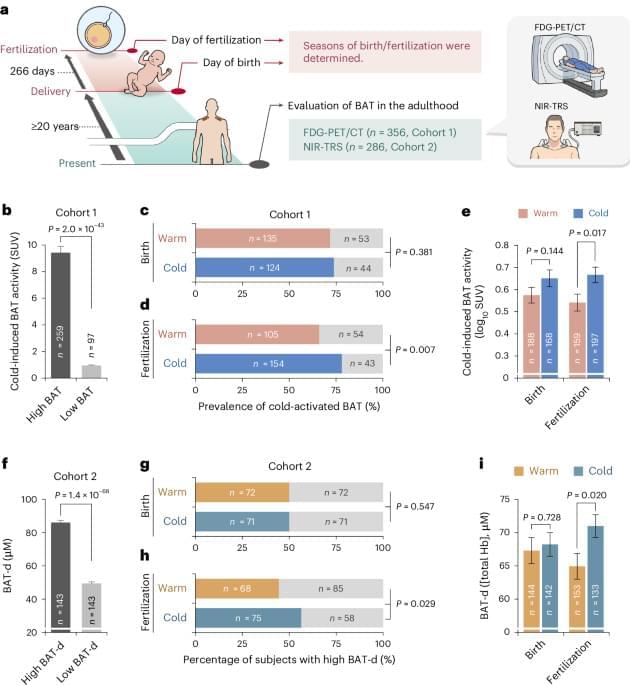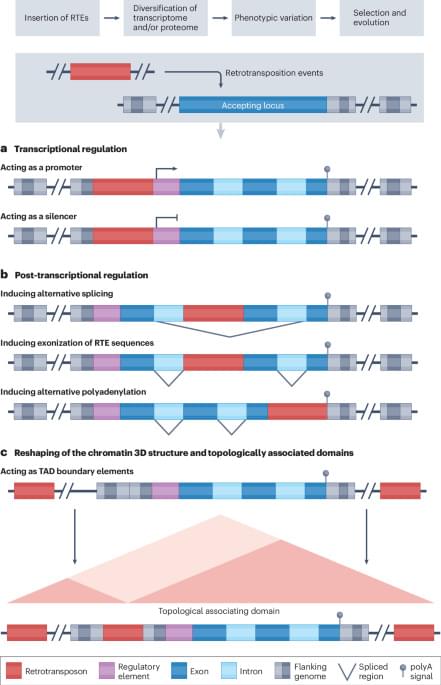In humans, conception during cold seasons is shown to exhibit higher brown adipose tissue activity and adaptive thermogenesis, and lower body mass index and visceral fat accumulation in the offspring.





IN A NUTSHELL 🌍 China’s dominance in gallium production is reshaping global semiconductor and battery industries. ⚠️ Japan has raised alarms about the strategic implications of China’s control over critical resources like gallium, germanium, and antimony. 🔗 The U.S. sanctions against China have intensified competition for strategic raw materials, leading to trade tensions. 🏭 The



Researchers have pulled off a quantum feat that defies traditional expectations—they’ve created Schrödinger cat states not from ultra-cold ground states, but from warm, thermally excited ones.
Using a superconducting qubit setup, the team demonstrated that quantum superpositions can exist even at higher temperatures, overturning the long-held belief that heat destroys quantum effects. This breakthrough not only validates Schrödinger’s original “hot cat” concept but also paves the way for more practical and accessible quantum technologies.
Schrödinger’s cat and hot quantum states.
Register for member exclusives like early access to new content with a free Closer To Truth account: https://closertotruth.com/
Panpsychism is the theory that consciousness is irreducible and exists fundamentally at the foundations of reality. Panpsychism forms include ‘micropsychism,’ where fundamental particles or fields are in some sense conscious, and ‘Cosmopsychism,’ where the entire universe is in some sense conscious. What are the arguments for and against Panpsychism like the ‘combination problem’?
Closer To Truth is now on BlueSky! Follow us for updates, new videos, musings, and more: https://bsky.app/profile/closertotrut… Kastrup is a Brazilian-born Dutch philosopher and computer scientist best known for his work in the field of consciousness studies, particularly his development of analytic idealism, a form of metaphysical idealism grounded in the analytic philosophical tradition. Make a tax-deductible donation of any amount to help us continue exploring the world’s deepest questions: https://closertotruth.com/donate/ Closer To Truth, hosted by Robert Lawrence Kuhn, presents the world’s greatest thinkers exploring humanity’s deepest questions. Discover fundamental issues of existence. Engage new and diverse ways of thinking. Appreciate intense debates. Share your own opinions. Seek your own answers.
Bernardo Kastrup is a Brazilian-born Dutch philosopher and computer scientist best known for his work in the field of consciousness studies, particularly his development of analytic idealism, a form of metaphysical idealism grounded in the analytic philosophical tradition.
Make a tax-deductible donation of any amount to help us continue exploring the world’s deepest questions: https://closertotruth.com/donate/
Closer To Truth, hosted by Robert Lawrence Kuhn, presents the world’s greatest thinkers exploring humanity’s deepest questions. Discover fundamental issues of existence. Engage new and diverse ways of thinking. Appreciate intense debates. Share your own opinions. Seek your own answers.

